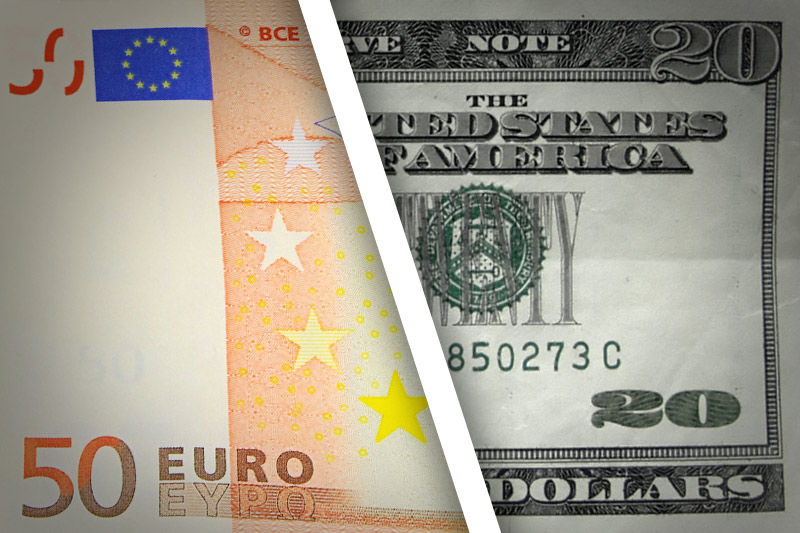Investing.com - The euro trimmed losses against the U.S. dollar on Wednesday, after a report showed that the U.S. private sector added more jobs than forecast in September, but gains were limited as uncertainty over the timing of a Spanish bailout persisted.
EUR/USD pulled back from 1.2877, the session low, to hit 1.2914 during European afternoon trade, 0.03% lower on the day.
The pair was likely to find support at 1.2802, Monday’s low and a two-week low and resistance at 1.2967, Tuesday’s high.
Payroll processing firm ADP said U.S. non-farm private employment increased by a seasonally adjusted 162,000 in September, surpassing expectations for an increase of 143,000.
The previous month’s figure was revised down to a gain of 189,000 from a previously reported increase of 201,000.
Sentiment on the single currency remained fragile after Spanish Prime Minister Mariano Rajoy said Tuesday that a bailout request was not imminent, despite ongoing speculation that Madrid was moving closer to requesting external financial aid.
Investors also remained cautious after a string of weak service sector data earlier in the session fuelled concerns over the outlook for the global economic recovery.
The final euro zone services PMI came in at 46.1 in September, well below the 50 level which separates contraction from expansion.
In the U.K., data showed that the service sector shed jobs for the first time in 10 months in September as growth slowed; undermining hopes for a sustained recovery in the recession hit economy.
Also Wednesday, official data showed that growth in China’s service sector moderated in September.
The euro was slightly higher against the pound, with EUR/GBP inching up 0.08% to 0.8014 and gained ground against the yen, with EUR/JPY rising 0.30% to 101.26.
Later in the day, the Institute of Supply Management was to produce data on U.S. service sector activity.
EUR/USD pulled back from 1.2877, the session low, to hit 1.2914 during European afternoon trade, 0.03% lower on the day.
The pair was likely to find support at 1.2802, Monday’s low and a two-week low and resistance at 1.2967, Tuesday’s high.
Payroll processing firm ADP said U.S. non-farm private employment increased by a seasonally adjusted 162,000 in September, surpassing expectations for an increase of 143,000.
The previous month’s figure was revised down to a gain of 189,000 from a previously reported increase of 201,000.
Sentiment on the single currency remained fragile after Spanish Prime Minister Mariano Rajoy said Tuesday that a bailout request was not imminent, despite ongoing speculation that Madrid was moving closer to requesting external financial aid.
Investors also remained cautious after a string of weak service sector data earlier in the session fuelled concerns over the outlook for the global economic recovery.
The final euro zone services PMI came in at 46.1 in September, well below the 50 level which separates contraction from expansion.
In the U.K., data showed that the service sector shed jobs for the first time in 10 months in September as growth slowed; undermining hopes for a sustained recovery in the recession hit economy.
Also Wednesday, official data showed that growth in China’s service sector moderated in September.
The euro was slightly higher against the pound, with EUR/GBP inching up 0.08% to 0.8014 and gained ground against the yen, with EUR/JPY rising 0.30% to 101.26.
Later in the day, the Institute of Supply Management was to produce data on U.S. service sector activity.
